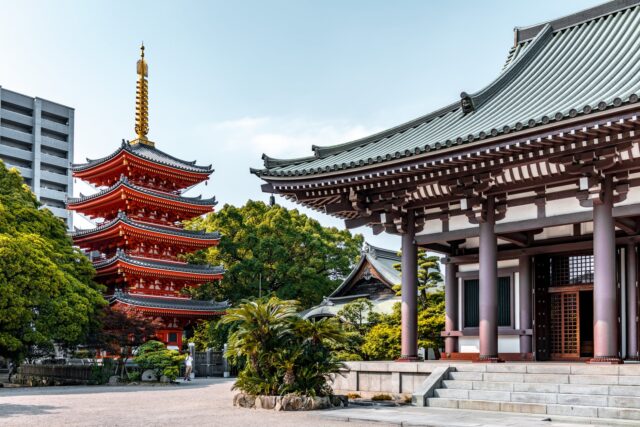I’ve had an interest in Japanese culture and history since long before Tom Cruise somehow became The Last Samurai (blegh!). It started in high school and then when I went to college, the game Shogun: Total War came out. I found the drama, conflict, and tumultuous changes of Sengoku Jidai (The Age of Warring States) terribly compelling. I bought some history books to read about that period, and then I found myself wanting to know more about everything that happened before then. Things continue to escalate today as I host and produce a podcast which features Japan’s storied history.
In my second year of college, I bought a DVD of the classic Kurosawa film Seven Samurai. Clocking in at 3.5 hours, the viewing experience itself is an epic adventure but it packs more punch than a lot of films with half the runtime.
The film is set in 1586, near the end of Sengoku Jidai, an age of constant warfare, betrayal, and skullduggery which left many Samurai dispossessed of their former holdings and without masters who require their services. The government is still preoccupied with subjugating the remaining independent feudal lords and the common people have been left to fend for themselves. When some villagers learn that a bandit gang plans to return at harvest time and steal their hard-worked foodstuffs, they go to the elder to see what should be done. Certain that the local constabulary has no interest in helping them, they send some of their young men to seek out ronin – masterless samurai – to defend them. As the villagers have no money, the elder recommends finding samurai who are hungry so they can pay them in rice.
Enter the Samurai
The samurai of feudal Japan were not just warriors, but were expected to be cultured, refined, and polite. The ronin whom the villagers find to defend them are not just a rival gang, but a group of virtuous warriors who follow a code. When they arrive in the village, it becomes clear that they will not be able to repel the forty bandits by themselves – they will need to train the villagers.
Wrapped in this story of courage, ideals, and honor is a deeper exploration of war itself. Most of the Samurai are veterans of the many battles which engulfed their nation and they carry the scars of that experience in their psyche. An awkward and nearly tragic situation arose when Kikuchiyo, a ronin who was born a farmer, discovers that the villagers have a hidden cache of weapons and armor. When he excitedly tells his fellow warriors about this, they become angry because there is only one place where the villagers could have acquired such goods – from hunting samurai who had become separated from their armies after a defeat.
When the battle finally arrives, the romance and ideals of the noble warriors melt away in favor of the stark practicalities of war. Unsuspecting bandits are pulled from their horses and brutally mobbed by the villagers who kill them with homemade bamboo spears. One villager who have been thus far portrayed as generally fearful and cowardly dies valiantly defending his post. And one of the samurai whose skill with a blade far surpasses any of his peers is suddenly shot with a musket and killed.
While it has moments of high comedy, this film veers sharply into tragedy but ultimately ends on a hopeful note. The samurai have not outlived their usefulness now that the wars are over, and life can go back to normal after the battle is done. The dead are buried with honors and now that the planting season has arrived, the farmers sing boistrously as they plant the crops which will feed them in the coming year. War is tragic, random, and merciless, but it does not last forever.
It’s no wonder that this film, released in 1954, was a massive success in its time. Less than ten years after the end of World War II, it’s easy to imagine that a lot of people in that nation were wondering about Japan’s future now that the war had ended and they had lost. The story’s tensions and contrasts continue to make it relevant in our time and, from the way things have been going during my lifetime, will continue to be relevant for many decades to come.

